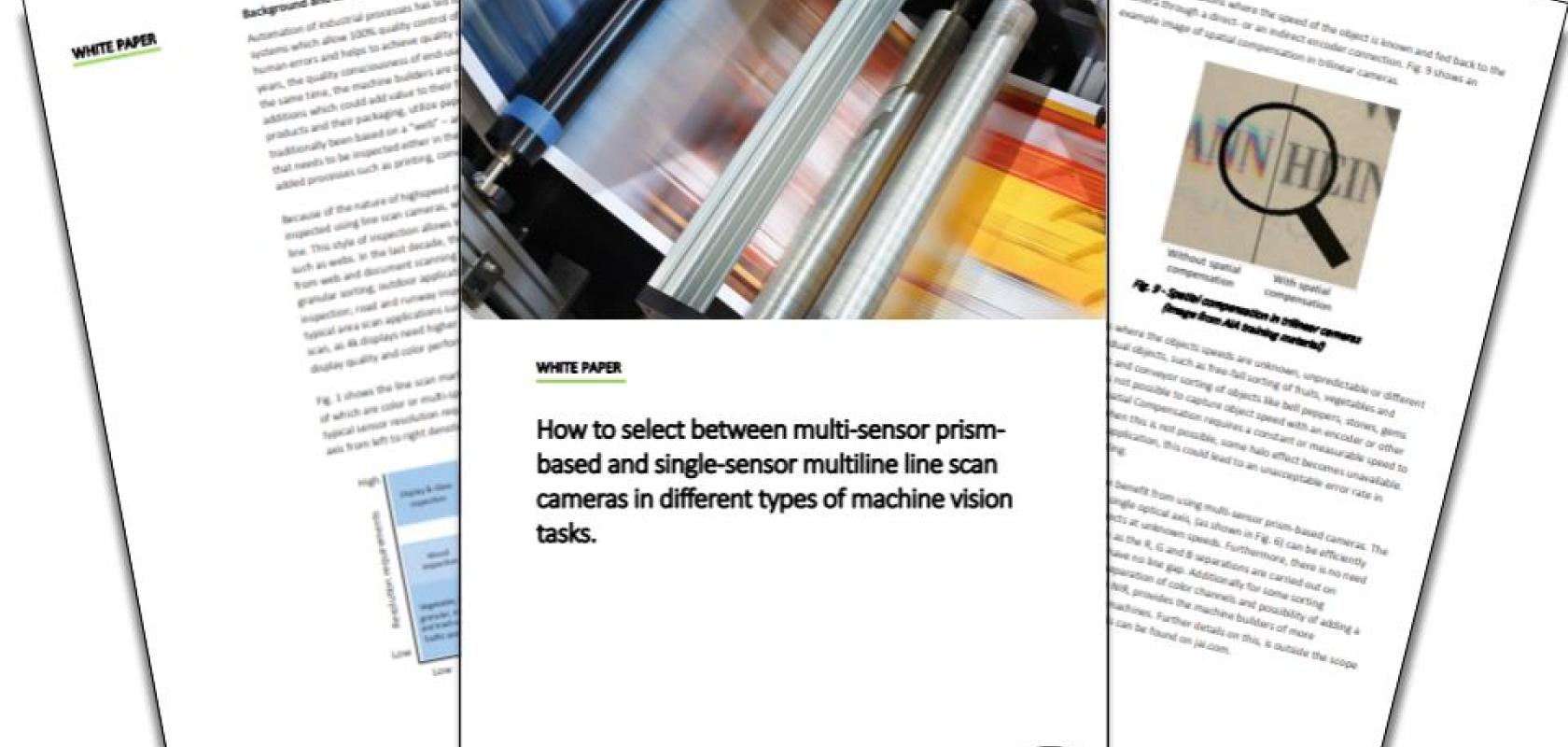Selecting line scan camera technology: multi-sensor vs single-sensor solutions

How to select between multi-sensor prism-based and single-sensor multiline line scan cameras in different types of machine vision tasks - a JAI White Paper
Optimise your machine vision systems with JAI's comprehensive guide to line scan camera selection. Learn the crucial differences between single-sensor multi-line and multi-sensor prism-based technologies for high-speed industrial applications.
What is line scan technology in industrial vision?
Line scan cameras remain critical to high-speed industrial imaging applications. As quality control demands evolve to include colour and multi-spectral imaging capabilities, selecting the right camera technology becomes increasingly important for manufacturing excellence.
What are the key applications?
- High-speed production line inspection
- Colour quality control systems
- Multi-spectral industrial imaging
- Continuous material inspection
Who should read this White Paper?
Whether you're new to line scan technology or an experienced engineer, this White Paper offers the tools and information to help make the best decision. It is specifically designed for:
- Vision system designers
- Machine vision engineers
- Industrial automation specialists
- Quality control system architects
What does the White Paper contain?
This detailed White Paper covers:
Market analysis
- Current industrial vision landscape
- Evolution of line scan applications
- Future technology trends
Technical comparison
- Single-sensor multi-line technology specifications
- Multi-sensor prism-based camera capabilities
- Performance benchmarking
- Resolution and speed considerations
Application-specific Insights
- Colour imaging requirements
- Multi-spectral analysis capabilities
- Speed versus accuracy trade-offs
- Integration considerations
Implementation guidelines
- Technology selection criteria
- Budget optimisation strategies
- Performance evaluation metrics
- ROI calculation framework
Business benefits
- Operational Excellence
- Optimise system performance
- Enhance quality control accuracy
- Improve production efficiency
- Reduce implementation errors
Investment protection
- Make informed technology decisions
- Maximise return on investment
- Future-proof vision systems
- Optimise resource allocation
Strategic advantages
- Align technology with business goals
- Enhance competitive advantage
- Improve operational efficiency
- Reduce implementation risks

